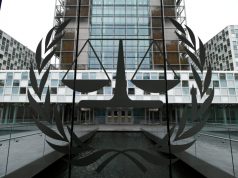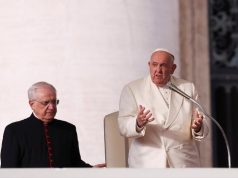
(Updated 11:35 p.m.) The Miss Universe Organization recently announced the prestigious pageant’s next venue: Eilat, a resort city in the southernmost part of Israel.
The 70th Miss Universe pageant will see Miss Universe 2020 Andrea Maza crowning her successor after seven months of reign. It will also see the return of veteran television personality Steve Harvey as host, reports note.
The three-hour event will be broadcasted live on Fox in the United States and in 180 countries and territories in December.
70 YEARS! 👑 The 70th #MISSUNIVERSE competition is heading to ….Eilat, Israel! 🎉 MISS UNIVERSE will air live around the world December 2021.
Stay tuned for more information or visit https://t.co/25sAUG0jBb pic.twitter.com/gX0XAPXfUg
— Miss Universe (@MissUniverse) July 20, 2021
Miss Universe Organization president Paula Shugart said that she and her team spent months planning a safe competition that will follow similar guidelines to the Miss USA pageant held in November last year at Memphis.
Israel is the first country to have reached vaccine herd immunity amid the COVID-19 pandemic.
Despite its low COVID-19 cases, the MUO’s decision to choose Israel as the venue for the most prestigious beauty pageant didn’t sit well with some fans who questioned the organization’s decision.
Israel’s Ministry of Tourism quoted Shugart who reportedly said that they have been eyeing the Middle Eastern country before “due to its rich history, beautiful landscapes [and] myriad of cultures.”
This is the first time in history that Israel will host the beauty pageant but the hashtag #BoycottMissUniverse has already surfaced on social media where some Filipinos echo accusations of “apartheid” and “genocide” against Israel in its conflict with Palestine.
“Find another host country,” one online user commented in response to MUO’s post.
Another pageant fan pointed out that the Philippines’ Gazini Ganados‘ father is from Palestine.
“Gazini is half-Palestinian. Gurl. Kung naging representative siya ta’s diyan siya mapapadala, the political implications,” the Twitter user added.
‘Apartheid’
Other Twitter users outside the Philippines also criticized the venue choice. One referenced South Africa’s apartheid in describing Israel’s occupation.
“@Official_MissSA, I hope you’re not going to send our Queen, Miss South Africa, to compete in an apartheid state given the history of this country. We stand with Palestine. #MissUniverse #FreePalestine #BoycottMissUniverse,” an online user wrote.
The use of the term “apartheid” against Israel was most recently attributed to rights watchdog Human Rights Watch, which accuses the Middle Eastern country of crimes against humanity in its conflict with the Palestinians.
Some observers and experts, however, reject the appropriation of the term, which is derived from an Afrikaans word meaning “apartness.”
“Defining the situation using the legal term of ‘apartheid’… removes the symmetry stemming from the term ‘conflict’ and the justifications of ‘reasonable’ or ‘proportional’ acts that stem from the legal framework of occupation. Terminology matters,” writes Leonie Fleischmann, an international politics scholar at the University of London.
What happened before
The issue stemmed from the days when Britain took control of the area known as Palestine after the Ottoman Empire was defeated in the First World War.
Back then, the land was inhabited by a Jewish minority and Arab majority but tensions grew when the international community gave Britain the task to establish a “national home” in Palestine for Jewish people.
Jews believed Israel was their ancestral home but Palestinian Arabs also claimed the land and opposed the move.
Between the 1920s and 1940s, several more Jews arrived in the area to escape persecution from Europe and seek a homeland after the Holocaust of the Second World War.
The United Nations in 1947 voted to split Palestine into separate Jewish and Arab states, which gained favor to Jewish leaders. The Arabs rejected this and it was never implemented.
In 1948, British rulers left and Jewish leaders declared the creation of the state of Israel. This was rejected by Palestinians and a war followed.
When a ceasefire happened, it was Israel that controlled most of the territory.
A peace agreement was never reached and the fighting continues up to this day, with Israeli authorities being accused of committing “grave abuses” against Palestinians in occupied territories.
Editor’s Note: Edits throughout.









